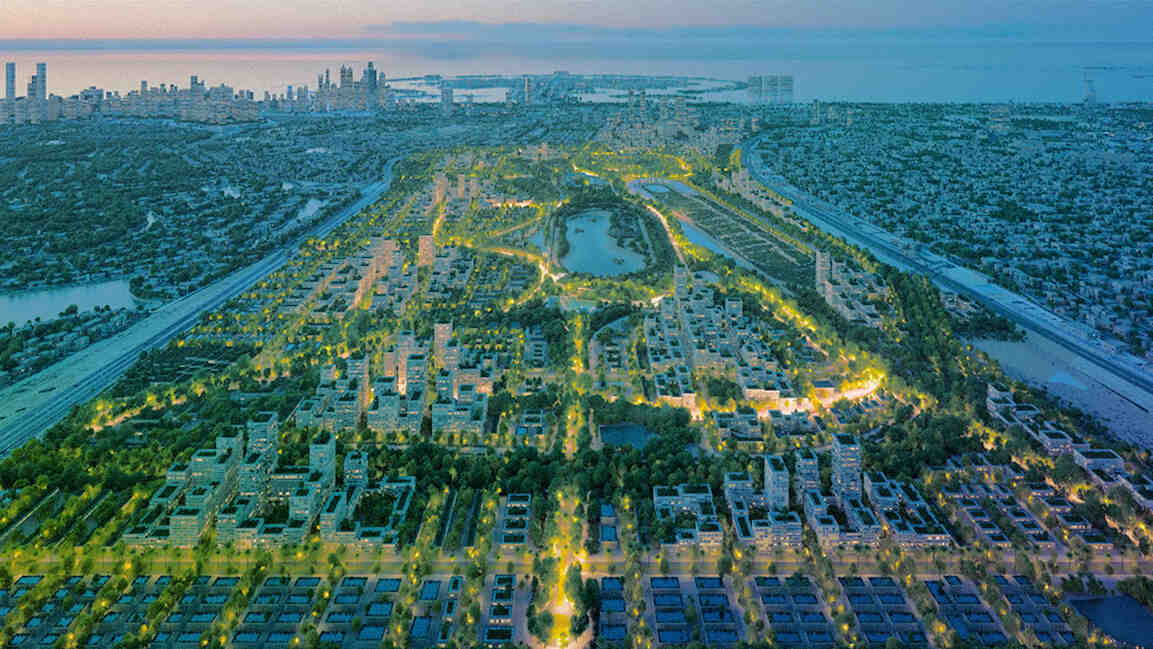- | 11:00 am
BIG and ARM Holding to redevelop Jebel Ali racecourse into sustainable urban hub
The masterplan is guided by 17 measurable KPIs focusing on holistic wellbeing, sustainability, cultural identity, and innovation.

BIG-Bjarke Ingels Group, the internationally acclaimed architectural firm known for its cutting-edge and sustainable urban designs, has partnered with Dubai-based developer ARM Holding to transform the historic Jebel Ali Racecourse into a modern urban district. The 5-square-kilometre site, once a centre for equestrian sports, will be reimagined as a vibrant, green-focused community that aligns with Dubai’s vision for sustainable and socially connected development.
According to BIG, the master plan revolves around a vast central park, intended to reconnect the city with its ecological and equestrian heritage. Mohammad Saeed Al Shehhi, CEO of ARM Holding, and Bjarke Ingels, Founder and Creative Director of BIG, officially announced the partnership at a signing ceremony.
“Occupying the grounds of Dubai’s historic Jebel Ali Racecourse, this project is an archipelago of urban islands in a sea of green – reimagining the site not as a collection of objects in isolation, but as a living landscape of interconnected communities,” said Ingels.
“Each island connects to its surrounding neighbourhood, increasing in density as it converges around a lush central park – a social oasis at the heart of the city. But the park doesn’t stop at the centre – it bleeds between the islands, weaving nature through the urban fabric and extending its reach to the wider community. This is not just a new neighbourhood; it’s a new chapter for Dubai – where environmental responsibility and social sustainability become the foundation, not the footnote, of urban development,” he added.
The master plan is guided by 17 measurable KPIs focused on holistic well-being, environmental sustainability, cultural identity, and innovation. Construction is expected to begin in early 2026, with phased development planned across residential, educational, hospitality, and public infrastructure sectors, according to BIG.































